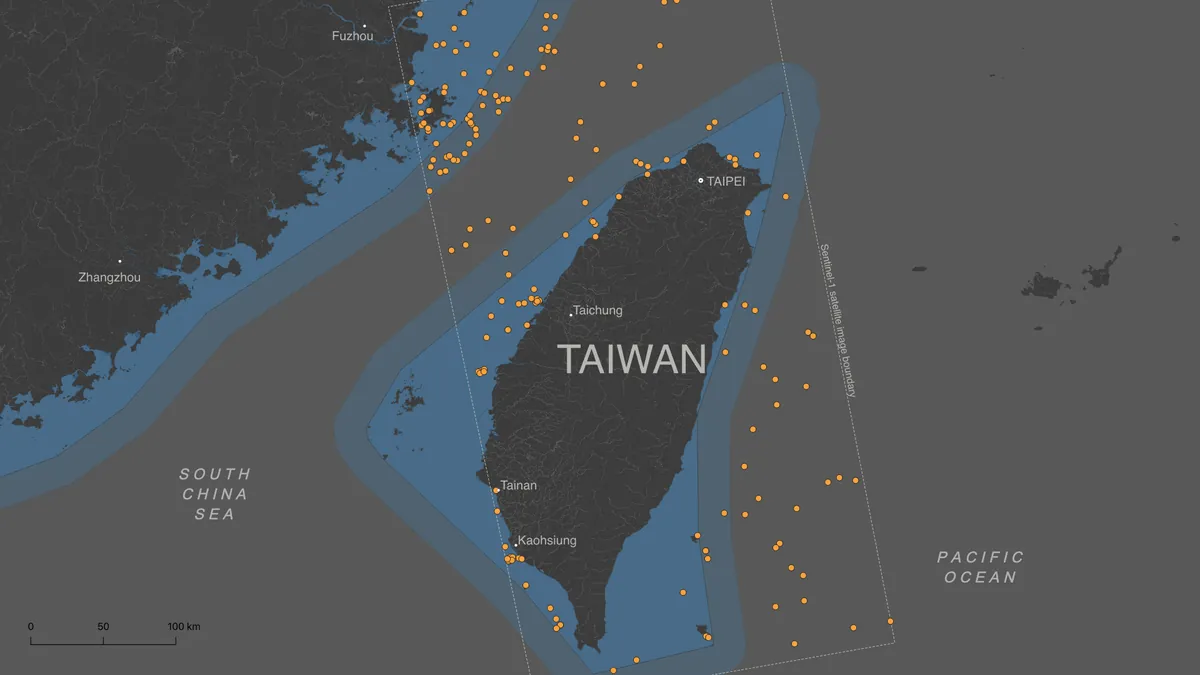Biden Approves $567 Million Defense Package for Taiwan Amid China Tensions
President Biden authorizes significant defense support for Taiwan, reinforcing U.S. commitment amid rising China pressures. The move aims to bolster Taiwan's military capabilities despite ongoing diplomatic complexities.

In a significant move to bolster Taiwan's defense capabilities, President Joe Biden has authorized $567 million in military support for the island nation. This decision, announced on September 29, 2024, underscores the United States' ongoing commitment to Taiwan's security in the face of escalating tensions with China.
The U.S. has long been Taiwan's primary international supporter and arms supplier, despite the absence of formal diplomatic ties. This relationship is governed by the Taiwan Relations Act of 1979, which provides the framework for U.S.-Taiwan relations. The newly approved package includes defense articles, services, and military education and training, although specific details remain undisclosed.
China, which considers Taiwan a breakaway province under its "One China" policy, has consistently opposed U.S. arms sales to Taipei. Over the past five years, Beijing has intensified its military and political pressure on Taiwan, which has been self-governed since 1949 following the Chinese Civil War.
Taiwan, officially known as the Republic of China (ROC), boasts a population of approximately 23.5 million and operates under a multi-party democratic system. Its military, the Republic of China Armed Forces, relies heavily on U.S. support to maintain its defensive capabilities against potential threats from across the Taiwan Strait.

The island's strategic importance extends beyond geopolitics. Taiwan is a global leader in semiconductor production, with its high-tech industry centered in the Hsinchu Science Park. As the world's 21st-largest economy by nominal GDP, Taiwan plays a crucial role in global supply chains, particularly in the technology sector.
President Biden's latest authorization follows a comprehensive aid bill signed in April 2024, which provided support not only to Taiwan but also to Ukraine and Israel. This broader initiative reflects the U.S. commitment to its allies and partners in various regions facing geopolitical challenges.
"We express our sincere gratitude to the United States for its unwavering support of Taiwan's defense capabilities. This assistance is crucial for maintaining peace and stability in the Taiwan Strait."
Despite the substantial support, Taipei has expressed concerns about delays in U.S. arms deliveries, including upgrades for F-16 fighter jets, a key component of Taiwan's air force. These delays highlight the complex nature of international arms transfers and the delicate balance the U.S. must maintain in its support for Taiwan.
The ongoing situation in the Taiwan Strait echoes historical tensions, reminiscent of the Taiwan Strait Crisis of 1995-1996, which also involved U.S. military intervention. Today, as then, the U.S. walks a fine line between supporting Taiwan's de facto independence and avoiding direct confrontation with China.
As Taiwan continues to assert its sovereignty, it faces significant diplomatic challenges. The island is not a member of the United Nations due to China's opposition, limiting its international recognition. However, initiatives like the Taiwan Travel Act of 2018, which encourages official visits between U.S. and Taiwanese officials, demonstrate ongoing efforts to strengthen ties despite these obstacles.
The latest defense package reaffirms the U.S. commitment to Taiwan's security, even as it navigates the complex geopolitical landscape of East Asia. As tensions persist, the international community watches closely, recognizing the potential global implications of developments in the Taiwan Strait.


































